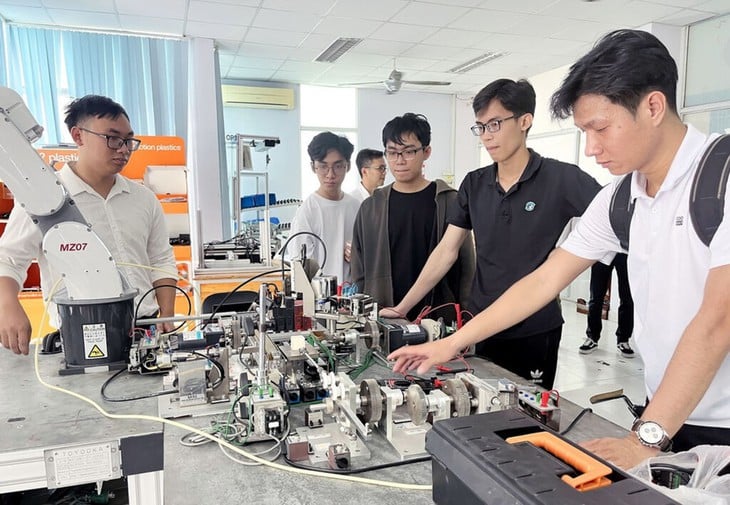
Students practice research at the Ho Chi Minh City High-Tech Park Training Center - Photo: VNA
The Draft Document of the 14th National Congress has affirmed the key role of education and training as a top national policy, but in the context of the era of artificial intelligence and big data, developing digital human resources in learning and working also needs to be considered a core strategy.
Young people in the integration flow
According to the World Economic Forum (WEF)'s "Future of Jobs 2025" report, up to 63% of global employers see the digital skills gap as the biggest challenge by 2030. (1)
In Vietnam, according to statistics from the Ministry of Science and Technology , there are currently about 1.2 million workers working in the information technology sector, and this number is expected to increase to 3 million by 2030 to meet the development needs of the digital economy. (2)
These figures reflect the urgent need for high-quality digital human resources, and warn about Vietnam's future competitiveness.
According to records, more and more young people are leaving traditional office jobs, due to less job demand, low income, lack of promotion opportunities, to look for more flexible and free jobs such as programming, design, content creation, e-commerce...
But most of them are not equipped with proper digital skills, lack a solid career foundation, and do not have a social security system adapted to the new employment model.
Without timely guidance and support, a segment of young workers may be left out of the accelerating digital economy.
Therefore, for "digital human resources" to truly become a strategic pillar of the country, breakthrough policies on education, lifelong learning, career transition and ensuring digital equity are needed.
Key recommendations put young people at the heart of Vietnam's digital future
Firstly, the young generation of Vietnam needs a clear compass to orient their studies and careers.
Proposing to develop competency standards for Vietnamese Digital Citizens, including three core skill groups: technology skills (AI, data, digitalization), digital professional skills (e-commerce, content creation, digital project management) and social skills (critical thinking, online collaboration).
Along with that, career development orientation, public recruitment needs, skill roadmap and reference salary for each profession.
Young people can rely on it to determine their study direction and career change, instead of following trends or making vague choices.
Second, propose to build a national Digital Learning Passport, a lifelong learning account, each citizen can accumulate credits in digital skills, data, AI and new professions.
Every year, learners are given free credits to participate in basic training courses, helping them change careers or upgrade skills without financial barriers.
This is learning support for all people, especially young people and the disadvantaged, to relearn, re-start and continue to develop in the digital age.
Third, many young people, workers, and freelancers want to change careers but lack the conditions to study or digital devices.
Propose to establish a Fund to support Digital Career Transition, provide low-interest study loans, support online learning equipment and scholarships for the disadvantaged.
Operates on a public-private model, with participation from technology companies, banks and online learning platforms.
The fund provides low-interest student loans, online learning equipment and scholarships for the disadvantaged, helping workers transition from low-skilled to higher-value occupations.
Fourth, to combine learning with work. It is necessary to form an ecosystem connecting the state - businesses - schools - digital platforms to implement internship programs, remote work and digital startups for young people.
Enterprise-recognized digital skills certificates will help learners "learn by doing", earn income, gain experience and confidently participate in the global labor market.
Fifth, young people in remote areas, people with disabilities, and women are often left behind in digital career transition. It is recommended to establish a special priority program for this group:
Support digital learning devices (tablets/laptops, internet connection). Organize practical vocational training classes locally, coordinate with vocational schools and technology enterprises for training and direct recruitment.
Sixth, build a network of psychological support and soft skills for career changers because many young people are afraid of failure, afraid of being replaced by AI, or confused by too many career choices.
Specialized career counseling is needed for people switching to digital technology, helping young people identify their strengths and weaknesses and choose the right career.
Soft skills courses, critical thinking, virtual teamwork, digital content creation, self-learning and continuous adaptation.
Psychological support, facing career risks, first failures, technology pressure with mentors and community to accompany you so you don't give up.
Today’s young generation is living in an era of diverse learning and careers. If given the right tools and opportunities, I think they will not only adapt, but also lead the country’s digital transformation.
This is a human resource policy, also a human development strategy, placing young people at the center of Vietnam's future. If supported, oriented, and invested properly, learning and career change today will be the foundation for development and prosperity tomorrow.
Invite to join the forum of People's opinions sent to the Party
Readers are invited to view the full text of the draft documents of the 14th Party Congress at the links below and send their comments to Tuoi Tre Online . Readers are invited to send their comments to the email address: gopyvankien@tuoitre.com.vn. The editorial board will select thoughtful and practical comments to publish in the newspaper and on Tuoi Tre Online.
Draft documents announced by the 13th Party Central Committee for comments include:
- Draft Political Report of the 13th Party Central Committee at the 14th Party Congress.
Please see full text here.
- Draft Action Program of the Party Central Committee to implement the Resolution of the 14th National Congress of the Party (attached with the Political Report).
Please see full text here.
- Appendix 4: Assessment of 5 years of implementing the 10-year Socio-Economic Development Strategy 2021-2030.
Please see full text here.
- Appendix 5: On summarizing Party building work during the 13th Congress term and directions, tasks, and solutions for Party building work during the 14th Congress term.
Please see full text here.
- Draft Report summarizing a number of theoretical and practical issues on the socialist-oriented renovation process over the past 40 years in Vietnam.
Please see full text here.
- Draft Report summarizing 15 years of implementing the Party Charter (2011-2025) and proposals and directions for supplementing and amending the Party Charter.
Please see full text here.
********
References:
(1) WEF_Future_of_Jobs_Report_2025.pdf
Page 6, excerpt in English: Skill gaps are categorically considered the biggest barrier to business transformation by Future of Jobs Survey respondents, with 63% of employers identifying them as a major barrier over the 2025-2030 period.
(2) Vietnam improves practical capacity for digital human resources
Original English text: According to statistics from the Ministry of Science and Technology, Vietnam currently has 74,000 enterprises operating in the information technology sector with more than 1.2 million employees.
To keep up with the growth rate of the economy, it is expected that Vietnam will need 3 million employees working in this field by 2030. The information technology industry is considered a relatively high-paying industry.
Source: https://tuoitre.vn/gop-y-van-kien-dai-hoi-dang-xiv-giao-duc-la-quoc-sach-thi-phat-trien-nhan-luc-so-la-chien-luoc-20251103225554398.htm



![[Photo] Ho Chi Minh City Youth Take Action for a Cleaner Environment](https://vphoto.vietnam.vn/thumb/1200x675/vietnam/resource/IMAGE/2025/11/04/1762233574890_550816358-1108586934787014-6430522970717297480-n-1-jpg.webp)
![[Photo] Ca Mau "struggling" to cope with the highest tide of the year, forecast to exceed alert level 3](https://vphoto.vietnam.vn/thumb/1200x675/vietnam/resource/IMAGE/2025/11/04/1762235371445_ndo_br_trieu-cuong-2-6486-jpg.webp)

![[Photo] Comrade Nguyen Duy Ngoc holds the position of Secretary of the Hanoi Party Committee](https://vphoto.vietnam.vn/thumb/1200x675/vietnam/resource/IMAGE/2025/11/04/1762234472658_a1-bnd-5518-8538-jpg.webp)
![[Photo] Government holds a special meeting on 8 decrees related to the International Financial Center in Vietnam](https://vphoto.vietnam.vn/thumb/1200x675/vietnam/resource/IMAGE/2025/11/04/1762229370189_dsc-9764-jpg.webp)


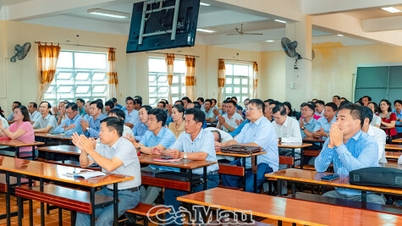



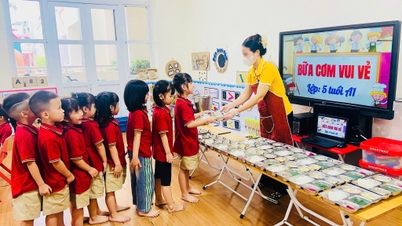
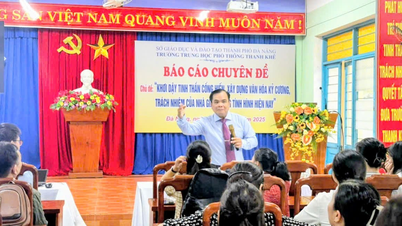








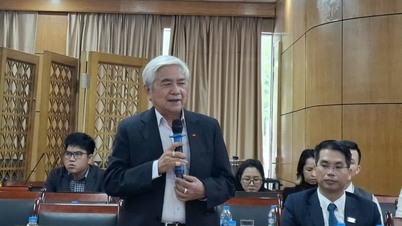


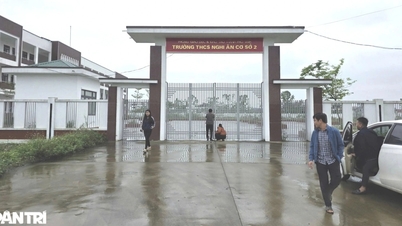










![[Photo] The road connecting Dong Nai with Ho Chi Minh City is still unfinished after 5 years of construction.](https://vphoto.vietnam.vn/thumb/1200x675/vietnam/resource/IMAGE/2025/11/04/1762241675985_ndo_br_dji-20251104104418-0635-d-resize-1295-jpg.webp)


















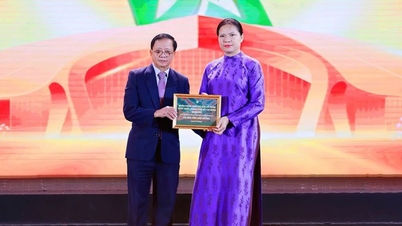




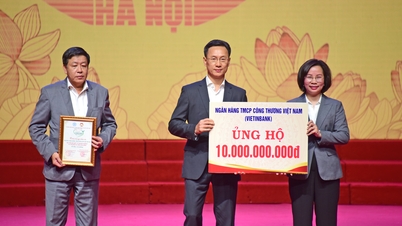




















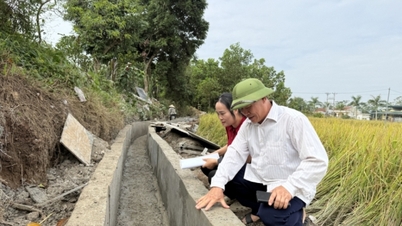






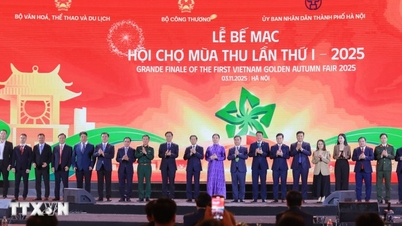

















Comment (0)